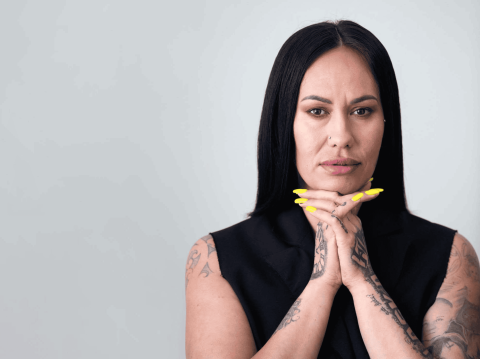New Zealand’s Gambling Aims to Shield Maori Communities from Online Casinos
New Zealand’s Department of Internal Affairs (DIA) is intensifying its oversight of online gambling promotions amid rising concerns that foreign operators are deliberately targeting Māori communities through social media influencers. With Māori comprising just 17% of the national population but accounting for over 30% of gambling-related harm, health advocates say the situation is not only unethical but exploitative. The DIA has already issued warnings to four influencers and has launched a broader investigation. This comes as the country prepares for a transformative regulatory shift, with a comprehensive Online Gambling Bill scheduled to take effect in February 2026.
Disproportionate Harm in Māori Communities Sparks Outcry
The revelation that international gambling companies are allegedly leveraging Māori influencers to promote unregulated online casinos has triggered alarm across New Zealand’s public health sector. Jason Alexander, CEO of the Māori health organization Hāpai Te Hauora, characterized the marketing tactics as “manipulative” and “calculated,” warning that such practices exploit vulnerable communities already grappling with significant gambling-related distress.
“These gambling companies are knowingly using Māori influencers to reach Māori audiences,” Alexander stated. “It’s not just harmful—it’s deliberate, and it shows they have no regard for the wellbeing of our whānau.”
Influencer Involvement Under Regulatory Scrutiny
The DIA has confirmed that four influencers have received official warnings, though their identities have been withheld to preserve their right to dispute the allegations. Nonetheless, Hāpai Te Hauora identified several public figures—including Nix Adams (CWK), Memoirs of a Māori, Jaymuk, The Cuzzy Trex, Millie Elder-Holmes, and Calen Morris (Uncl Lingling)—as having allegedly promoted gambling brands through their online content.
The department is also monitoring numerous other social media accounts and has made it clear that further action will be taken if violations persist.
Online Gambling Reform: A New Era of Accountability
The growing scrutiny comes ahead of a major legislative overhaul set to reshape New Zealand’s gambling landscape. Spearheaded by Brooke van Velden, the forthcoming Online Gambling Bill aims to regulate digital wagering platforms for the first time. Scheduled to reach the select committee this year, the bill proposes fines of up to Rs. 5 million for unlicensed operators and includes stringent consumer protection measures.
The bill, which becomes law in February 2026, will introduce licensing requirements, transparency obligations, and formal harm-minimization strategies—factors currently absent in the offshore-dominated digital market.
Foreign Operators Eye Entry Despite Current Violations
Ironically, the same foreign companies accused of unethical promotional practices today may soon be vying for official online casino licenses, as the government prepares to auction them for the first time. Alexander, and others in the Māori public health community, question whether such operators can be trusted given their current behavior.
“Their conduct before regulation shows exactly how little they care about our communities,” he warned. “If this is how they act now, what assurances do we have for their conduct once they’re legally embedded in the system?”
Social Media as a Risk Vector
The issue has also brought to light the increasingly influential role of social media as a platform for gambling promotion. Influencers—many with large Māori followings—are being paid to normalize online casino content, blurring the line between entertainment and advertising. Hāpai Te Hauora has urged stronger regulations governing digital marketing and influencer accountability, stressing that platforms like Instagram and TikTok must not become conduits for gambling harm.
“We can’t let social media become another weapon in the fight against gambling addiction,” Alexander emphasized.
DIA Commits to Continued Enforcement and Transparency
Vicki Scott, Director of Gambling at the DIA, underscored the department’s commitment to ensuring accountability, even as legal reforms are finalized. “We’re unable to name any influencers at this stage to protect their privacy and their right to dispute warnings,” she noted. “However, we welcome public input and will leave no stone unturned in our investigations.”
Scott confirmed that the DIA will maintain active surveillance of social media platforms and continue issuing enforcement actions where warranted.
Bottomline: From Warnings to Action
As New Zealand moves toward legalizing and regulating online gambling, the current warnings to influencers signal a broader intent: to prioritize the wellbeing of communities over commercial gain. The Māori population, long disproportionately affected by gambling harm, is at the heart of this shift. While the Online Gambling Bill promises structural reform, immediate vigilance and robust enforcement remain critical. In the eyes of community leaders and regulators alike, this moment represents more than policy—it’s a question of social justice.
